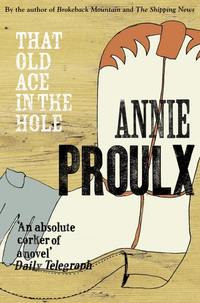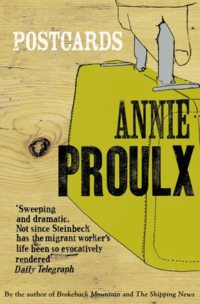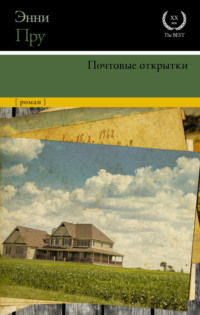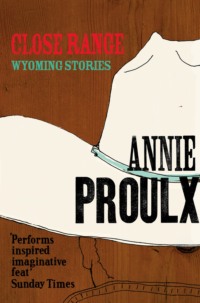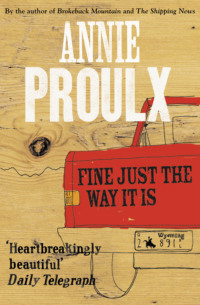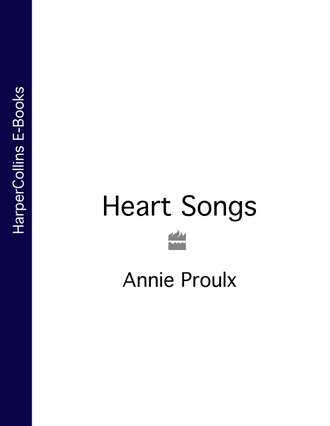
Полная версия
Heart Songs
Too many times I had to crawl on hands and knees through slash where a wounded bird had dropped, praying it hadn’t crept into a stump where I could never find it, where it would die. One I did lose. Five hours of beating back and forth in a swamp, poking into rotted logs, kicking heaps of slash and damning the lack of a dog and my atrophied sense of smell. Again that maul stroke from the second ridge, a single shot, and I envied Banger his dog. I had to leave my bird unfound.
The loss of the bird spoiled that place for me, and I decided to work over to the lean spine of rock where Banger and his dog hunted. I was sure by now that my distant hunting companion was Banger, mythical friend, sprung from the echoes of a firing mechanism, the unknown Banger imprisoned in the loudmouth’s shell.
The first early snows came and melted and we were into Indian summer. The sky was an intense enamel blue, but the afternoon light had a dying, year’s-end quality, a rich apricot color as though it fell through a cordial glass onto an oak table, the kind of day hunters remember falsely as October.
It was a day for birds. They would be lounging in favorite dust bowls, feeding languidly on thorn apples like oriental princes sucking sugared dates. A late patch of jewelweed with a few ragged blossoms in a wet swale caught my eye halfway up the ridge. There was a thick stand of balsam at the far end. The jewelweed had a picked-over look, and the balsams had good ground openings for walking birds. It felt birdy.
I breathed shallowly to keep my heartbeat from vibrating the air. I knew the birds saw me, knew that I knew they were there, and I waited for the wave of adrenaline to pass, for the hot blows of blood to subside. I slid the safety off.
The birds were invisible in the runways under the firs, resting after a morning of snapping off the jewelweed flowers that burst halfway down their throats. Young birds, I thought, into the jewelweed. They would fly up as soon as I took a step forward.
I stayed still, never quite ready, the moment taking me. I waited too long, and a delicate pattering in the leaves of the hardwoods beyond the balsams like the first tentative drops of rain told me the birds had walked away, young tender grouse with pinkish breastbones who might have been flushed, might still be flushed, but who had won this particular encounter. Let them have the jewelweed and the October sunlight this time.
I skirted the balsam stand and came out on the back of Banger’s ridge. When I looked down I saw Stone City.
There are some places that fill us with immediate loathing and fear. A friend once described to me a circle of oaks behind a farmhouse in Iowa that made the hair on the back of his neck stand up. Later he heard that the body of a murdered child had been found there, half-covered with wet soil, a decade earlier. I felt something evil tincturing the pale light that washed my first view of Stone City.
It was an abandoned farm lying between two ridges, no roads in or out, only a faint track choked with viburnum and alder. The property, shaped like an eye, was bordered on the back by a stream. Popple and spruce had invaded the hay fields, and the broken limbs of the apple trees hung to the ground.
The buildings were gone, collapsed into cellar holes of rotting beams. Blackberry brambles boiled out of the crumbling foundations and across a fallen blue door that half-blocked a cellar hole.
I came cautiously down the slope to the fields. The grass hummed with cicadas, crickets and grasshoppers that had escaped the early frosts. The buzzing stopped as I stepped into the field. The soil looked thin. A long backbone of rock jutted from the pasture. Something of the vanished owner’s grim labor showed in a curious fenceline that would stand another hundred years; the fence “posts” were old iron wagon axles sunk deep into holes hand drilled in the granite ledge.
There was no wind. Yellowjackets were at the rotten apples under the orchard trees. The light fell slow, heavy. Inhaling the sharp odor of acetic, rotted fruit I stepped into the honey-colored field. I remembered the feeling I had as a child, of sadness in the early fall.
A bird tore from the apple tree with a sound like ripping silk straight toward the narrow neck of field that closed into trees. Feathers made a brief aerial fountain and I marked the bird’s fall into quivering grass as I dropped the gun. A second, a third and a fourth roar, the air was full of birds, breakers of sound over my head, bird flight and shotgun beating against the walls of hillside and birds falling like fruits, hitting the ground with ripe thumps. Only the first of them was mine.
A bell tinkled and a Brittany came into the field to pick them up. Banger said, “You stepped out just the same time as I did. You the one I hear shootin’ up in the Choppin’ Swamp these past weeks?” He didn’t look at me. The dog brought all the birds to Banger.
“Nice shooting,” I said. The birds were good-sized. “What is this place?” There were three hens and a smaller cock.
Banger looked around and twisted up his mouth a little. He took up a bird and gutted it.
“This place, this old farm, is a place I used to hunt when I was a kid. I was run offa here three times, and the last time I was helped along with number six birdshot. Still got the little pick scars all acrost my back. Old man Stone. Shot me when I was a kid, trying’ to run me off.” He pulled the viscera of the second bird from the hot cavity.
“Place used to be called Stone City. I still call it that. Stone City. The Stones all lived up here—three or four different families of them. Their own little city. Tax collector never come up here. No game warden, nobody except me, a kid after the birds. There’s always been birds here.”
“What happened to the Stones?”
“Oh, they just died out and moved away.” His voice trailed off. I didn’t know then he was lying.
The afternoon sun streamed over Banger’s dog who sat close to his leg. His hand went out and cupped her bony skull. “My dog,” he said. “All I got in the world, ain’tcha, Lady?”
He squatted on the ground and looked into the dog’s eyes. I was embarrassed by their intimacy, by the banal name, ‘Lady,’ by the self-pity in Banger’s voice. No, I thought, there was no way I could be Banger’s hunting companion. He had his dog. So it was a shock when the dog walked over to me and licked my hand.
“My Jesus,” said Banger. “She never done that in her life.”
He didn’t like it.
We walked back past the cellar holes toward the spruce at the end of the fields. Banger’s dog walked beside and one step behind him.
“Give you a ride,” said Banger.
His old Power Wagon was parked on a logging road half a mile below Stone City. It rode rough, bottoming out on hummocks and rocks. Lady sat in the middle and stared straight ahead like a dowager being driven to the opera. Banger shouted at me over the roar and clatter of the truck.
“Old man Stone … meanest bastard I ever … all his sons and daughters wilder … mean … and they was a lot of them.” The gears crashed and Banger wheeled the truck onto the main road.
“They had all these little shacks with broken-down rusty cars out front, piles of lumber and empty longnecks and pieces of machinery that might come in handy sometime, the weeds growin’ up all crazy through ’em everywhere. The Stone boys was all wild, jacked deer, trapped bear, dynamited trout pools, made snares, shot strange dogs wasn’t their own and knocked up every girl they could put it to. Yessir, they was some bunch.” He turned onto a dirt road that ended at the sugarhouse he’d fixed up.
“Should of looked at what I was doin’. Guess I brought you home with me, I’m so used to turnin’ up the hill. Fried bird for supper. You might as well stay.”
He took down four birds from the side of his woodshed and hung up those in his game vest. He wouldn’t let me help pluck the supper birds but waved me into the sugarhouse. Lady raced around him, chasing the down feathers in the rising late afternoon wind.
I looked around inside. There were a few books on a shelf, some pots and pans hanging from nails, the dog’s dish and a braided Discount Mart rug behind the stove. Banger’s cot, narrow as a plank, stood against the far wall. I thought of him lying in it, night after night, listening to the dog’s snuffling dreams behind the stove.
The place was something of a grouse museum with spread pat tails mounted on the walls—greys, a few cinnamon reds and one rare lemon-yellow albino. Curled snapshots of Banger as a young man with grouse in his hands were stapled up beside colored pages cut from hunting magazines, showing grouse on the wing. There were shotguns hanging from pegs and propped in the corners. A badly mounted grouse of great size, tilted a little to one side as though it were fainting, stood on a section of log behind the door, and nests of dried-up grouse eggs on a little shelf must have dated back to Banger’s boyhood collecting days, featherlight shells filled with dried scraps of embryonic grouse.
I lit the kerosene lamp on the table, illuminating a framed photograph in a wreath of plastic flowers, a picture of a girl standing in front of a farmhouse with a sagging roof. She had long hair, the ends blurred as though the wind were blowing it when the shutter snapped. She squinted into the sunlight, holding a clump of daisies hastily snatched up at the last minute for effect. I could see the clot of soil clinging to the roots. Banger’s dead wife.
Lard spattered out of the frying pan and flared, ticks of flame, as Banger dropped in the floury pieces of grouse. He sprinkled salt and pepper, then threw the fresh livers and giblets of the day’s bag to Lady behind the stove.
We ate in silence. Banger’s jaws worked busily on the savory birds. He said nothing for a change. The oil lamp flame crept higher. I thought of wagon axles set in granite ledge and asked what old Stone was like.
“He was the worst of the whole goddamn tribe. Had kids that was his grandkids. Dirty old tyrant, used to whip ’em all, keep ’em in fear.” His fingers drummed a partridge roll on the table. He shouted at the photograph of the girl, continuing an unfinished argument. “The old pig ought to have had nails pounded into his eyes and a blunt fence post hammered up his asshole!” Banger’s voice choked.
I did not see him for nearly a month after that dinner.
2
The dark fox trotted behind the screen of chokecherries along the highway, undisturbed by the swishing roar of vehicles twenty feet away. This was the extreme southern border of his range and he new crossed this road. The corpse of a less-wise raven lay beneath a bush like a patch of melted tar. The fox rolled in the carrion, grinding his shoulders into it. He got up, shook himself and continued his tour, a black feather in the fur of his shoulder like a dart placed by a picador.
As swiftly as though she were pulling grass Noreen plucked the second bird. The other lay on the white enamel drainboard, a dusky purple color.
“Oh, I don’t mind doin’ it. I done hundreds of ’em. There was one or two years when I was a kid, things were real bad up here, no jobs, no money. We lived on pats and fish – trout, suckers, anything. I used to clean the birds.” Her fingers leaped from the small body in her left hand to the pile of feathers in the sink and back again.
“My brother Raymon’ done the fish. He never liked the smell of a bird’s guts, but it don’t bother me. He can skin out or clean any other kind of animal just as fast and good, but not birds. I don’t mind ’em.”
There were five of six dull pocks as she yanked the difficult wing tip feathers. “Okay, there you are.” They lay side by side, dark cavities between their rigidly upthrust legs. Noreen leaned against the sink, dove-grey twilight washing up around her like rising water. Her russet hair was twisted into curls and there was a downy feather on her cheek. She sang a few words that sounded like “won’t lay down with Cowboy Joe.” The hell with Cowboy Joe, I thought, what about me?
It wasn’t the first time I’ve been in a bed that turned into a confessional afterwards.
“You married?”
“Yes.”
“Yeah, me too. I knew you were.” The vixen face was pale in the thickening dusk.
“My brother,” she said. “My brother Raymon’, you know?”
“Yes.”
“He ain’t my full brother, see, he’s only my half brother.” Her voice was a child’s, telling secrets. “See, Ma had him before she met my dad, and Dad give him his name.” The bed was a fox’s den, rank fox smell, the smell of earth. She whispered. “I done it with Raymon’.”
“When?”
“Long ago, the first time, see? He’s only my half brother. That was the only time.” She looked at me. “Now you.”
“Now me what?”
“Now you got to tell something bad you done.”
It stopped being a game. Unbidden, to my mind came childhood crimes and adult cruelties. I was furious to feel prickling tears.
“Tell me about Raymond,” I said.
“See, she was goin’ with this guy, he come from a family that used to live around here—the Stones, they don’t live here now—and Raymon’ was on the way, but before they could get married there was some bad trouble so Raymon’ didn’t have a father. It was real love and she almost went crazy. But she met my father, he was cuttin’ wood over here, workin’ for St. Regis. He come from a town up in Quebec.”
“So Raymond is really a Stone?”
“Yeah. Well, he never used the name, but that’s his blood. That’s half his blood.”
I thought of Stone City, the broken shacks, the blue door with its peeling paint, the iron axles, the outlaw hideout.
“Which one of the Stones was he?”, thinking of what Banger said about the old man.
She got up and began to dress in the faded evening. She smoothed back her hair with both hands. “This is between you and I,” she whispered solemnly. “Floyd. He was the one that got the electric chair.”
It became a regular thing. Every Friday night was confession night. I heard who killed the kitten, who stole a coveted blouse from a girlfriend. She was absorbed in family relationships. Most of all I heard about young Raymie’s troubles with his old man, Raymon’ the Half-Stone, as I thought of him.
“Raymie got another beatin’ last night. See, he’s got to run that trapline every twenty-four hours, and he’s suppose to do it real early in the mornin’ before he goes down to the hardware. Well, he forgot and you shoulda heard the way Raymon’ tore that kid up. He’s got a real violent temper. Raymie, he hates trappin’. He wants to get out of here, go to New York, be a rock singer. You ought to hear him.”
3
There were only a few weeks left in the season. I did not let my new interest in the confessional break the pattern of birds. I went out every few days, sometimes only for an hour, sometimes until the end of the light. I did not go to Stone City, tinged with Banger’s dark and private hatred. The first staying snows fell; the air hardened and crystallized to winter temper.
One morning, with the damp smell of coming snow hollowing my nostrils, I found Banger’s and Lady’s fresh tracks in the strip of hardwoods behind my house, bearing south. I took the deliberate trail as an invitation, thinking that perhaps it was the closest Banger could get to asking me to come along.
He had a good start. It was past noon by the time I reached Stone City. I’d traveled parallel to Banger’s trail, but higher up the mountainside, thinking his earlier passage would have sent the birds sweeping and scuttling up the slope into hiding from storm and man.
I did well, flushing half a dozen in my slow hunt, for it was not a day when the birds moved easily. I brought one down, a reflex shot through a thick stand of young fir, as thin and crowded as bamboo, despite my cold-numbed thumb that could barely nudge the safety off. It grew increasingly colder and the snow began, serious snow.
Stone City was a desolate ruin, but Banger had a fire going in the shelter of a crumbled stone foundation wall and was boiling coffee in a small pot. The blue door was covered with snow. The flakes spit as they hit the flames. Banger threw on another silvered board from the collapsed house.
“Get anything?”
I held up the bird and described the shot. Banger spread the tail into a lady’s fan, counted the feathers, flicking the two unbarred ones, gave me a look of reproach when he saw I had not opened the crop and did so himself.
“Beechnuts. All mornin’ they been gettin’ ’em before the snow covers ’em all up. Every one a these”—he pointed at the four birds lying in a neat row—“was full up with beechnuts. Beechnut birds has got the best flavor.”
I had never gotten the limit of birds in my life.
The coffee was hot and good. Banger said he always carried a little bag of coffee and the small pot in his game vest for the cold days. The fire burned down fast into plank-shaped coals. Banger went down into the cellar hole, looking for dry boards. He came out rubbing something on his sleeve.
“By God, look what I found on the top of the wall down there.” He held it out to me. “That’s old man Stone’s knife.”
It was a big folding knife with two blades, corroded, rusted. The body of the knife was a mottled yellow celluloid. There were shadowy images under the celluloid, flakes of images that suggested a pirate playing a concertina or a pile of books tumbling from a table while a mad professor grinned. There was a clearer image on the other side. A naked girl sat cross-legged on a beach, looking at the camera with a curved smile like the rim of a wineglass. Her hands patted a cone of sand between her legs.
I handed the knife back to Banger. It was heavy, as though it had gathered weight with age. Banger kept playing with it, trying to make out the shattered image. “By God, old man Stone’s knife!” He laughed.
“What’s the story on the Stone that was electrocuted?” I asked. Noreen had never gone back to the subject and a mutual delicacy kept either one of us from returning to that first conversation.
“Electrocuted? How’d you hear about that?”
I didn’t answer and he turned the knife in his hands.
“That was Floyd Stone, the one that brought the whole pack of Stones down. He was a wild one, but not so wild as some of the others.” The fresh planks smoked and then caught, blue flames rose elegantly along the edge of the boards. Lady put her head on Banger’s knee and looked across the fire at me.
“How’s my girl? How’s my good old girl?” I said in that foolish voice I use with dogs I like. She wagged her feathery tail. Banger tightened his arm around her and I had a guilty rush as though I’d been caught caressing another man’s wife.
“Floyd Stone. People around here had trouble with the Stones since the town began. Fact, the Stones were the first settlers here, but nobody brags about it.
“They come up from New Hampshire or down from Quebec, one, I don’t know which. A real old family, and a real bad family. Floyd was just like all his brothers and cousins, had a crazy streak in him when he was drunk; he’d do anything, just anything. Always had a deer rifle with ’em, all of ’em.
“This one time he was drivin’ up the hill from town, drunker’n a skunk, real hot, but not so loaded he couldn’t navigate that old truck. Gets to the train crossin’, train’s goin’ through. Seventy-three boxcars. He counts ’em. Two automobiles come up behind him, one the Baptist minister. End of the train comes. There’s that guy standin’ out on the little caboose porch. He waves to Floyd like them fellows do.
“Floyd picks up his .30–.30 quick as a snake and shoots the guy right through the head just like you or me woulda waved back. Shot him dead for no reason. Never even saw him before. Then he took off for up here. Stone City.”
Banger pried a rusted blade out of the knife’s body. “They come up to get him from all over. Had the state police, the sheriff, couple hundred men from down below, all had guns and anxious to use ’em. It was an army. The crowd was real ugly, had enough of Stones.
“Old man Stone come out on the porch. ‘Git off my property!’ he yells like he had a shotgun in his hands. But he didn’t have no shotgun. Guess he would have if he hadn’t been boiled himself. Holdin’ a pitcher, one of them old tin pitchers, sloppin’ full of some kind of homemade jungle juice. Just stood there, swayin’ back and forth, eyes all red, yellin’ ‘Git off a my property!’
“State police yells back, ‘We have a warrant here for the arrest of Floyd Stone for the willful murder of whoever he was, and so forth. Come on out, Floyd!’
“Course Floyd didn’t come out. There was four or five houses here, could of been in any one of ‘em, could of been in the woods. Then the state police says something to four of his guys and they run right up those porch steps and grab old man Stone and arrest him for obstructing justice. Right there was the porch.” Banger pointed at the blue door.
“Fight, kick, scream, seventy years old, but that old man flashed out with his long fingernails and cut one of the state police right across the eyeball, fellow lost his eye and had to be pensioned off on full disability.
“Nobody wanted to go into them houses to look for Floyd. This was before they had mace and stuff that they squirt under doors. Crowd’s ready for action, real savage. Somebody yells, ‘Tear them houses down! That’ll uncover the murderin’ little prick!’ Like I said, there was a couple hundred people there.
“They swarm all over those houses, pullin’ rotten boards, kickin’ in windows. Somebody got a axe and pried up the ends of the clapboards and ten more would rip it off like it was paper. Stones come flyin’ out of those houses, women, kids, drunk Stones, some old granny, all of ’em yellin’ and cryin’.
“Well, they got Floyd, too, in about ten minutes. He was layin’ under the bed, hidin’, had his old killer deer rifle under there with him, pointin’ it at the bedroom door. He wasn’t expectin’ to have the whole back wall ripped off real sudden and a dozen guys grab his ankles and yank him out from under that bed. Police took him away—had some trouble to git him away, too—and left the rest of the Stones there with us. Somebody found some roofin’ tar and started gettin’ it hot.”
I wondered if Banger had been the one to find the tar.
“They killed all the chickens for the feathers and some geese and ducks too. Then they stripped every one of them Stones except the women and the kids, and they poured that hot old tar right to ’em, went for the privates, and then they dumped on the feathers.”
The snow drifted and whirled in the rising wind like down, like the flying feathers tossed onto the tarred Stones. A snow devil twisted briefly near the fallen porch. Christ, I thought, what kind of people were these?
4
Because of his color the fox rarely crossed open ground in snowy weather, but kept to woods and brush, mouse-hunting on the margins of open land. In the bitter dawn, his muzzle frosted, he headed for a bramble patch at the edge of a deserted field, hoping for a morning hare. Hare tracks ran like cats’ cradles of tangled string, looping through the briars and into the spruce, then fading to nothing in the drifts as though the hare had unfolded strange wings and flown into the trees. Nose down, the fox trotted along, hoping for the warm scent, but there was only an elusive suggestion of hareishness. He was almost on the frozen shape in the snow before he caught the hateful odor of his greatest enemy. At almost the same time he was aware of the fact of death. His heart thudded, and so great was his agitation that he ran across an open meadow, an easy target for a fox hunter, had there been one.
During the night it turned intensely cold. A gusting wind rattled the windows and drove snow under the door. By Friday morning the snow had stopped but the wind scoured the ground bare in front of the house and built a knife-edged crescent drift across the drive.



